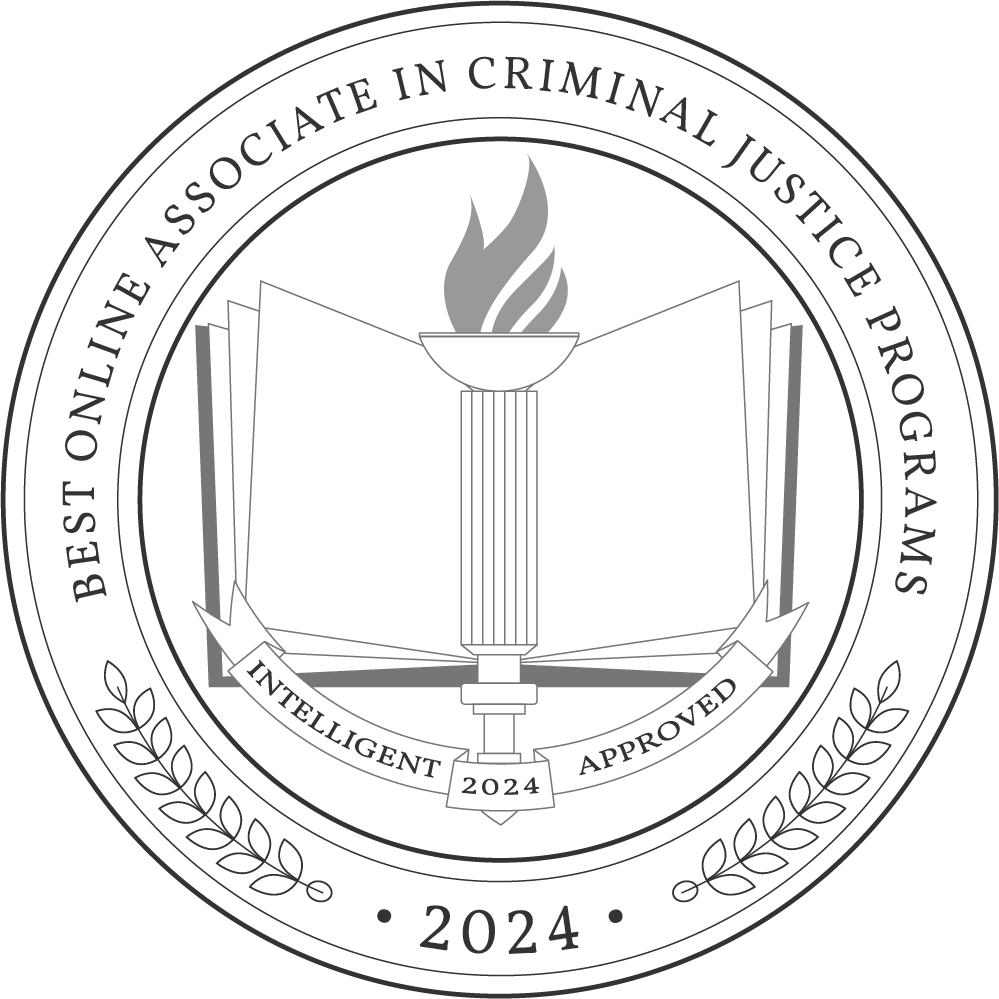Why This Matters
-
95% OF PROBATION OFFICER JOBS REQUIRE A COLLEGE EDUCATION
95% of probation officer jobs require some form of postsecondary education. While most require a bachelor’s, there are opportunities available for those with an associate degree.
-
2,400 NEW JOB OPENINGS ANTICIPATED BY 2032
The demand for probation officers and corrections treatment specialists is rising across the United States, with an anticipated 3% increase in the need for new officers by 2032.
-
POTENTIAL TO EARN A SIX-FIGURE SALARY
The median wage for probation officers and corrections treatment specialists in the United States is $59,860, with the highest 10% of workers earning over $101,080.
Our Research
This list features some of the best online associate in criminal justice degree programs at top colleges nationwide. Each school featured is a nonprofit, accredited institution — either public or private — with a high standard of academic quality for post-secondary education.
We evaluated each school’s program on admission, retention, and graduation rates as well as tuition costs, faculty, reputation, and the resources provided for online students. Then, we calculated the Intelligent Score on a scale of 0 to 100. Read more about our ranking methodology.
Next, we compared this comprehensive list of online associate in criminal justice degree programs to a list of aggregated college rankings from reputable publications like U.S. News & World Report, among others, to simplify a student’s college search. We pored through these rankings so students don’t have to.
- 73 hours to write this article
- 100 universities and colleges we assessed
- 149 education programs we compared
The Top 50 Online Associate in Criminal Justice Programs

Discover More Options
What You Should Know About This Degree
Criminal justice is just one field of study; other areas students might want to consider include police science and forensic science. While a criminal justice degree is concerned with corrections, forensic and police science degrees are focused on the science behind studying crime scenes.
Only apply to schools approved by a DOE-recognized accrediting organization, such as the New England Commission of Higher Education (NECHE) or Northwest Commission on Colleges and Universities (NWCCU). If your school isn’t accredited, you may be unable to access financial aid or transfer credits to another institution if needed.
Once your education is completed, the job outlook is relatively good, with the Bureau of Labor Statistics projecting an average rate of growth in this profession. In addition to a college education, those looking for work in this field may need to pass physical and psychological examinations.
What’s Next?
Here are some questions to ask when researching online associate degrees in criminal justice:
- How long does it take to complete this online degree? Most associate degree programs, including those in criminal justice, take about two years to complete, provided students attend classes full time. Many schools offer students the opportunity to fast-track their program and graduate more quickly. Part-time learning may also be available for students with busier schedules — this can take several additional years to complete, depending on the student’s pace.
- What licensing or certifications are required? While corrections workers don’t typically require professional licensing, most do need to have clean criminal records as well as up-to-date CPR and first aid certifications.
Throughout your search for an associate degree program, be sure to consider deadlines and requirements for admission and follow them closely. This information is typically available on the program page of the school’s website. You might also want to consider financial assistance if you can’t fund your program independently. Ask your employer if they offer funding assistance and research other options such as scholarships and grants.